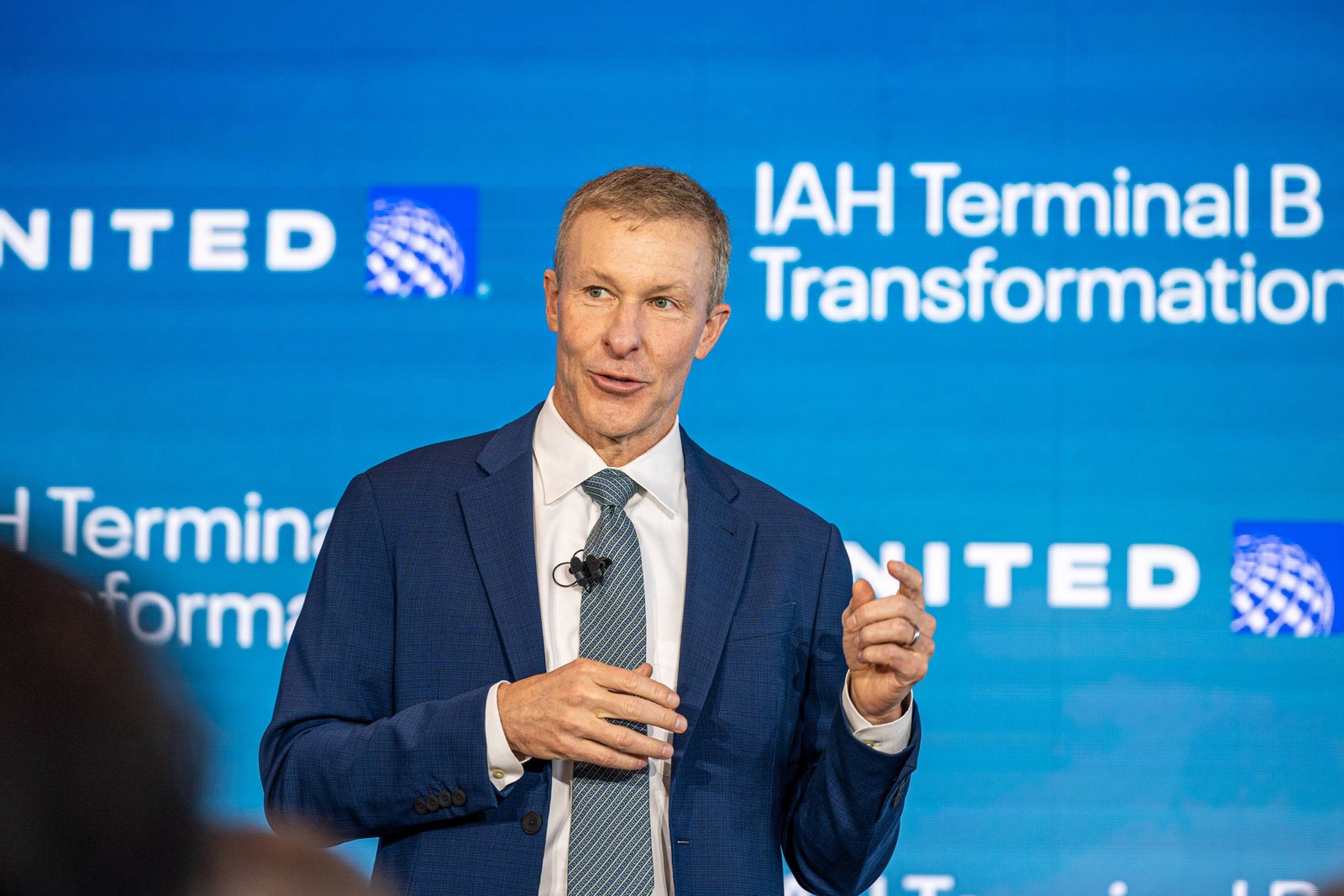United Airlines CEO Scott Kirby recently expressed his confidence in the airline’s business plan, despite concerns about the broader market. Kirby believes that United’s two-pronged network plan, which involves growing domestically with larger planes in crowded markets and expanding globally to capture international leisure demand, will lead to success for the airline in the coming years.
The airline is focused on increasing its global presence by strengthening its position in established international markets like London and Paris, as well as adding routes from various hubs to destinations that may not have direct flights from the US. United is particularly targeting leisure travelers, including those visiting friends and relatives, who tend to be more price-conscious. The airline has recently added flights to cities like Christchurch, New Zealand; Amman, Jordan; and Accra, Ghana.
United also plans to resume and expand service across the Pacific as countries in Asia reopen after the peak of the pandemic. The airline has announced or initiated routes to cities such as Taipei, Taiwan; Manila, Philippines; Tokyo, and Hong Kong.
However, concerns have emerged regarding the outlook for the transatlantic market in 2024. Some analysts believe that airlines are adding too much capacity, which could result in overcapacity and lower airfares. While this could benefit passengers, it would lead to lower yields for airlines like United and require them to scale back their operations. Kirby, on the other hand, disagrees with this assessment and remains confident in the demand for transatlantic travel.
In terms of the domestic market, Kirby expects a more challenging environment due to slowing demand, ongoing supply chain issues, staffing shortages in air traffic control, and other factors. He anticipates that domestic growth will moderate significantly compared to previous estimates, with airline plans for growth decreasing from around 11% to less than 5%.
Kirby acknowledged the ongoing challenges faced by the industry, including the shortage of air traffic controllers. He also mentioned that United is facing difficulties in getting newer, larger aircraft on time due to supply chain issues affecting aircraft manufacturers like Boeing and Airbus. Despite these challenges, Kirby believes that the domestic market is still performing well for United and that demand remains strong.
Kirby has previously highlighted the potential for a shakeout in the domestic market, particularly for low-cost carriers. He believes that rising fuel and labor costs will pose challenges for low-cost airlines without better cost and pricing structures. Kirby stated that the lowest margin airlines, including low-cost carriers like JetBlue and Spirit Airlines, could struggle in the current market conditions. He expects both airlines to face significant challenges, regardless of whether their proposed merger is approved.
In conclusion, United Airlines CEO Scott Kirby remains confident in the airline’s business plan, despite concerns about the broader market. He believes that United’s two-pronged network strategy and focus on global expansion and larger aircraft on domestic routes will lead to success in the coming years. However, challenges such as overcapacity in the transatlantic market and difficulties in the domestic market, including supply chain issues and staffing shortages, may impact the airline’s operations. Kirby also anticipates challenges for low-cost carriers in the current market conditions.

